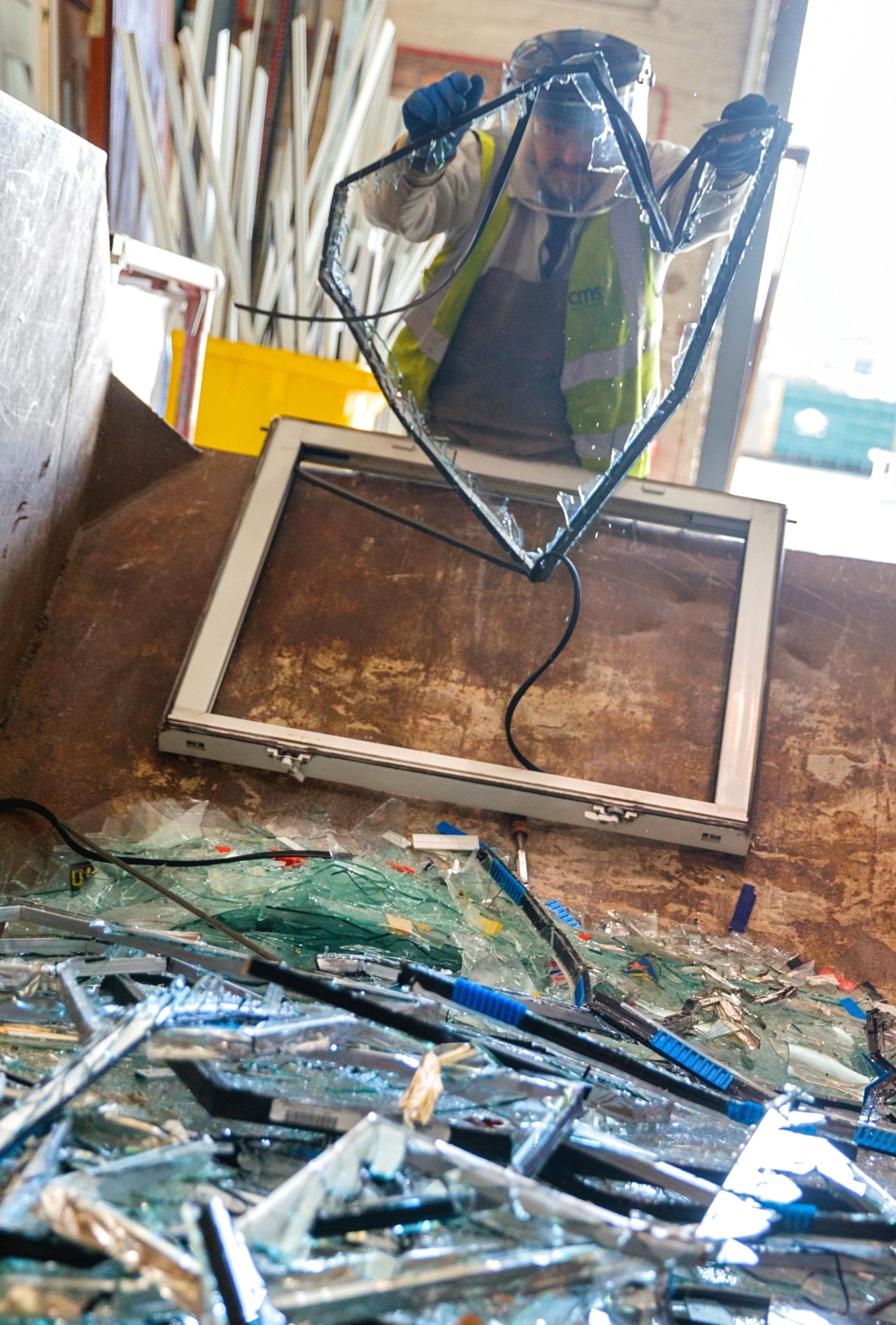CMS marks third consecutive landfill-free year
Facades, window and door designer, manufacturer and installer CMS Group has reported another 12 months in which none of its production or post-consumer waste was sent to landfill.

In its last financial year (2019-2020), CMS handled 2,802 tonnes of waste, generated mainly from post-use windows and doors that its installers remove during replacement contracts but also including waste from its office and factory operations – all of which is strictly recycled as standard.
Of this waste, 3.1% was reused, 96.5% was sent to be recycled and where possible remade into new products, including new glass double glazed units, and the remaining 0.4% was used by waste-to-energy specialists.
CMS said this third consecutive ‘zero landfill’ achievement reflects the long-term success of its business strategy. Ever since its inception in 2006, the company has operated its own full-scale in-house waste processing facilities to collect and separate all waste resulting from its manufacturing, installation and office functions.
Any post-use windows and doors extracted from properties during replacement contracts are collected on-site and taken to CMS’s Castlecary site to be separated into their constituent parts – mainly PVCu, timber, aluminium, glass and steel – which is then sent to specialist recyclers. The team also identify products that can be re-used to ensure they completely avoid entering a waste stream, and the tiny proportion of materials that cannot be reused or recycled are sent to waste-to-energy specialists
In line with its ‘closed-loop’ ethos, CMS also continues to ensure that its aluminium profile, PVCu systems and glass contain a high degree of recycled material for the manufacture of new facades, windows and doors. For example, through its long term partnership with Saint-Gobain Glass, double glazed units installed by CMS contain 38% of post-use recycled glass.
CMS Group CEO, David Ritchie, said: “Hitting our zero landfill target for a third year in a row is a tremendous achievement and reflects the dedication and effort of the whole team in maintaining the highest levels of sustainable manufacturing and installation. Waste reduction and elimination is only going to become more important right across the construction and housing sectors as we work towards the zero carbon target dates set by Scottish and UK governments, so it is pleasing that we are already providing a successful model for the fenestration industry.”
Waste reduction is a core part of the United Nations’ 2030 Agenda for Sustainable Development, which the CMS Group’s business strategy is closely aligned with. This “shared blueprint for peace and prosperity for people and the planet, now and into the future” is underpinned by 17 Sustainable Development Goals (SDGs) including ‘Quality Education’, ‘Decent Work & Economic Growth’ and ‘Responsible Production & Consumption’.























